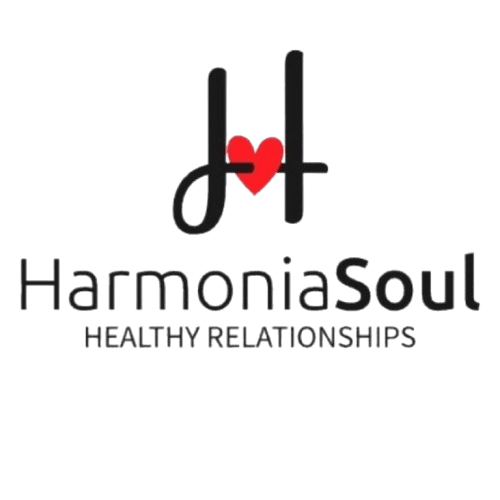Healing doesn’t always come with visible wounds, but it’s one of the most courageous paths a person can walk. For many men who have lived through childhood, emotional or relational trauma, the pain often remains buried beneath layers of silence, shame, and societal expectations.
At Harmonia Soul, we believe in exploring inner truths, nurturing self-awareness, and building meaningful connections. Supporting men through their recovery journey aligns deeply with these values — especially when emotional pain has remained hidden for far too long.
In this article, we’ll explore why vulnerability matters, how therapy can guide healing, and what steps men can take toward reclaiming emotional freedom. Whether you’re just beginning your journey or walking alongside someone else’s, this is a space for reflection, growth, and hope.

Why Vulnerability Is the First Step Toward Healing
Vulnerability is often misunderstood as weakness, especially by men raised in cultures that equate strength with stoicism. But true strength lies in the courage to face pain, speak up, and ask for help.
For men who have experienced emotional wounds, allowing oneself to be vulnerable is a radical act of self-compassion. It means acknowledging that what happened mattered — and that rebuilding is not only possible, but deserved.
Opening up doesn’t mean sharing everything with everyone. It starts with small, intentional steps: journaling thoughts, speaking with a trusted friend, or simply giving yourself permission to feel.
Therapy: A Safe Space for Men to Reclaim Themselves
Therapy offers a nonjudgmental environment where men can process emotional pain without fear of being dismissed or misunderstood. It provides tools to understand emotions, manage triggers, and rebuild trust — both in others and in oneself.
Many men hesitate to seek therapy due to stigma or fear of judgment. However, working with a therapist trained in trauma recovery can make all the difference. Several effective approaches include:
- Cognitive Behavioral Therapy (CBT): Helps identify and reframe negative thought patterns.
- EMDR (Eye Movement Desensitization and Reprocessing): Supports reprocessing of painful memories.
- Somatic Therapies: Focus on the body to help release trauma stored in the nervous system.
- Kinesiology: Uses gentle muscle testing to detect energetic imbalances and support emotional release, often without the need for deep verbal exploration.
- Natural Bioenergetics: Like Kinesiology that uses gentle muscle monitoring, it also combines Chinese Medicine, energy balancing, and body awareness to help release emotional blocks and restore inner harmony, without verbal explanations.
These modalities remind us that personal transformation doesn’t always require words. For many men, reconnecting with the body becomes the key to unlocking emotional resilience.
If the idea of traditional therapy feels overwhelming, know that there are many pathways — each valid, and each capable of guiding you back to wholeness.
Building Daily Practices That Support Emotional Recovery
Reclaiming well-being isn’t linear, but consistent, compassionate practices can create momentum over time.
Here are some daily habits that support emotional inner growth:
- Mindful breathing: Helps regulate the nervous system after emotional stress.
- Creative expression: Writing, music, or art can give voice to unspoken pain.
- Physical movement: Exercise releases endorphins and helps reconnect with the body.
- Connecting safely: Sharing with a support group or a close friend builds resilience.
These practices aren’t about fixing yourself — they’re about honoring your journey and showing up for yourself with kindness.
The Role of Connection in repairing Invisible Wounds
Isolation often deepens emotional wounds. On the other hand, connection — when safe and respectful — becomes a powerful antidote.
Whether it’s through friendships, community circles, or online support groups, finding spaces where men can share authentically is vital. These connections remind us that we are not alone, and that healing thrives in environments of mutual respect and understanding.
At Harmonia Soul, we encourage men to seek out communities that foster empathy, rather than competition — places where vulnerability is seen as a strength, not a flaw.
Your Journey back to self Story Is Still Being Written
Every man carries invisible wounds, but none must carry them alone. By embracing vulnerability, seeking therapy, and building healthy routines, emotional restoration becomes more than possible — it becomes transformative.
Your journey may be difficult, but it is also deeply human. And every step forward — no matter how small — is a testament to your strength.
At Harmonia Soul, we invite you to keep exploring, keep growing, and keep showing up for yourself with courage and compassion. Share this journey with someone who needs to hear it — because emotional repair is not just personal, it’s collective.
FAQ – Frequently Asked Questions
Q1: Is it normal for men to suppress emotions after difficult experiences?
Yes. Societal expectations often pressure men to stay emotionally guarded. However, recognizing and expressing feelings is a vital part of recovery.
Q2: How can therapy help men recover from emotional pain?
Therapy provides a safe environment to explore unresolved experiences without judgment. Approaches like CBT, EMDR, kinesiology, and Natural Bioenergetics allow men to process pain in ways that feel authentic and safe.
Q3: What are some daily habits that support emotional healing?
Journaling, mindfulness, physical exercise, creative expression, and connecting with trusted friends are all effective practices for ongoing healing.
Share This Story, Choose Your Platform!
One Comment
Comments are closed.



[…] Healing From Hidden Scars: 5 ways How Men Can Begin Their Journey After Trauma […]